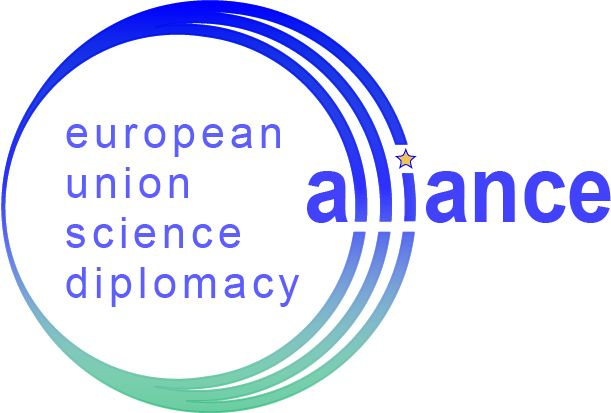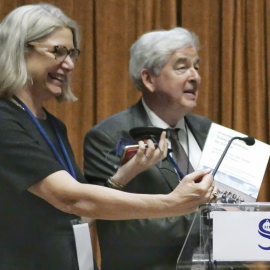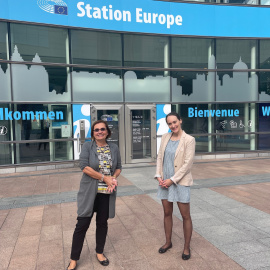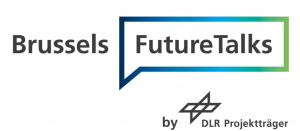
Virtual event, 24/11/2021
Science Diplomacy has the potential to improve the interaction between international policy, research, and innovation. It is crucial for future developments in these fields, as pointed out, for example, in the Council Conclusions on the Global Approach to R&l. Science Diplomacy can especially be useful to integrate education and youth. The role of young people in building sustainable and trustful partnerships between countries must be highlighted. This event, organized by the DLR Project Management Agency, as current chair of the EU Science Diplomacy Alliance, gathered policy-makers and key stakeholders for an interactive exchange with the future generation of experts in the area of Science Diplomacy, and for discussing with them about their hopes, concerns and recommendations. It contributed to the Conference on the Future of Europe.
In his keynote, Adam Tyson, Senior Advisor at DG Research and Innovation of the European Commission, introduced the Global Approach to R&I, Europe’s strategy for international cooperation in a changing world. He put emphasis on the chances that Science Diplomacy offers and outlined the ongoing work on the EU Science Diplomacy Agenda.
Four young experts contributed afterwards with their personal hopes, concerns and recommendations:
- Joanne Heslop, Postdoc Fellow GFZ German Research Centre for Geosciences
- Nejra Gurbeta, Young European Ambassador, Bosnia and Herzegovina
- Eliška Ullrichová, Institute of International Studies, Charles University, Czech Republic
- Marta Pulido Salgado, Institut d’Investigacions Biomèdiques August Pi i Sunyer, Spain
The questions that led the discussion included: How can future activities be better designed for and by young people? // How can we unleash the full potential of science diplomacy? // What incentives does science diplomacy offer to young people? // Which skills are needed to get prepared for the policy and diplomatic world?
A vivid discussion took place, enriched by the questions and suggestions by the audience, including more than 100 participants stemming from all around the globe.
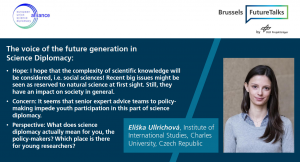
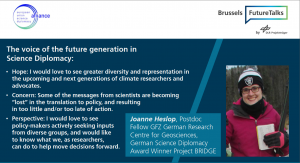


Reflections on the young experts’ contributions were formulated by a group of senior experts from EU SD Alliance members, partners and policy:
- Erik Piaget, Visiting Research Fellow, United Nations University CRIS
- Mostafa Moonir Shawrav, Chair of the Marie Curie Alumni Association
- Katalin Alfoldi, Global Networking Task Leader, COST Association
- Birte Wollenhaupt/Michael Vorländer, Permanent Representation of Germany to the EU
- Axel Leisenberg, French Ministry of Higher Education, Research and Innovation
The debate shed light on the enormous need for more interaction between scientists and diplomats. As well it was shown that more and specific trainings should be offered to young experts to understand and co-create the interfaces between science, diplomacy and policy-making.
Outlook:
2022 will mark the Year of European Youth, the speakers highlighted that this should be an excellent opportunity to provide a platform for a permanent dialogue with young experts in Science Diplomacy. Also, the new governance structure for the European Research Area could offer a forum for a regular dialogue with the future generation in Science Diplomacy.
The outcomes of the discussion should feed into the ongoing discourses on solving global challenges which have already reached immense attention in all spheres. The future generation of R&D experts, policy-makers and diplomats have to be involved in it, not tomorrow, rather today!
We will continue to address Science Diplomacy related issues in 2022. Follow us and be part of the debate!
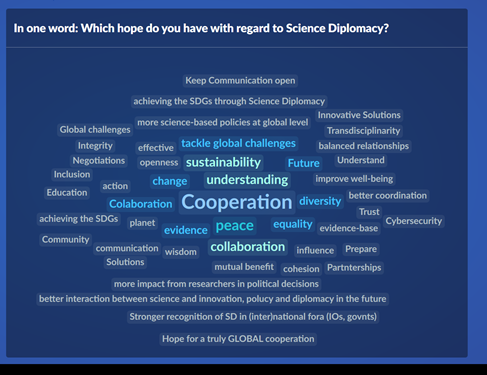
More info on: www.science-diplomacy.eu // Twitter: ©SciDipAlliance // Contact: angela.schindler-daniels@dlr.de
